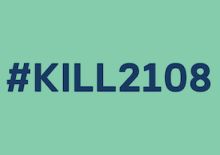
Fast, affordable Internet access for all.

The Friends of Municipal Broadband and Frank Smith of the Roanoke Valley Broadband Authority sent out a request this morning to Virginians who are concerned about improving connectivity:
Virginia Municipal Broadband Stakeholders
Good Morning,
Quick but urgent request: Please call as many VA House Delegates as you can this morning before today’s session starts at 11am. Let them know you STILL OPPOSE HB 2108!
A defense of our position is attached for reference.
Bill Status:
Last week HB 2108 passed the Labor and Commerce Committee last Thursday and will have its first full reading on the floor of the House this morning. The full House vote is scheduled for tomorrow. If the bill passes the House vote tomorrow it will Crossover to the Senate on Wednesday.
Things are moving fast and we really need your help to protect our local broadband authorities and the future growth potential of Virginia’s economy. Please start making calls and ask your staff and administration to do the same.
The more voices the representatives hear from the more seriously they’ll take this issue.
Thanks again for all you’ve done to get us this far.
The bill had its first reading on Friday and is being fast tracked.
